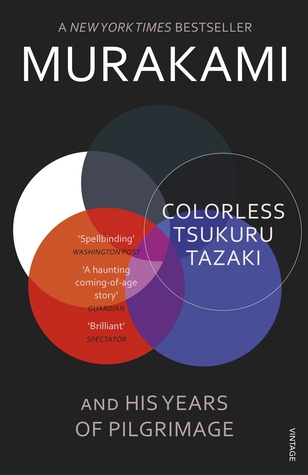
From the very beginning this fact made him feel a little bit left out." Murakami writes: "The two boys' last names were Akamatsu - which means 'red pine' - and Oumi - 'blue sea' the girls' family names were Shirane - 'white root' - and Kurono - 'black field.' Tazaki was the only last name that did not have a color in its meaning. When Tsukuru was in high school, he and a group of four friends were inseparable. he blushed easily, wasn't especially outgoing, and could never relax around people he'd just met." Murakami reinforces this description, adding, "he lacked a striking personality, or any qualities that made him stand out."īut "colorless" has a more literal meaning here, too. Tsukuru has "no deep interest in the arts, no hobby or special skill. Just the title alone sounds Murakami-like - weird and inviting. That's true of Colorless Tsukuru Tazaki and His Years of Pilgrimage. While Rowling's fantasy world is external and guided by specific rules, Murakami's is often interior, cerebral, and can suddenly veer off down unexpected, inexplicable corridors. And as a result, they each shape a world that is recognizably their own. Both of them are comfortable creating their own specific and elaborate house blend of fantasy and reality. And yet they do have something in common. Yet over the course of his formidable international career, Murakami has written novels that have been ambiguous to one degree or another, which hasn't stopped readers from lining up at midnight when his books go on sale.Īt first glance, you might think that Murakami has no overlap with that other writer whose work gets people lining up at midnight, J.K.

Usually writers get to be one of those, but not all of them. It's hard to think of another writer who is as popular, as strange, and as lionized as Haruki Murakami is.


Your purchase helps support NPR programming. Close overlay Buy Featured Book Title Colorless Tsukuru Tazaki and His Years of Pilgrimage Author Haruki Murakami


 0 kommentar(er)
0 kommentar(er)
